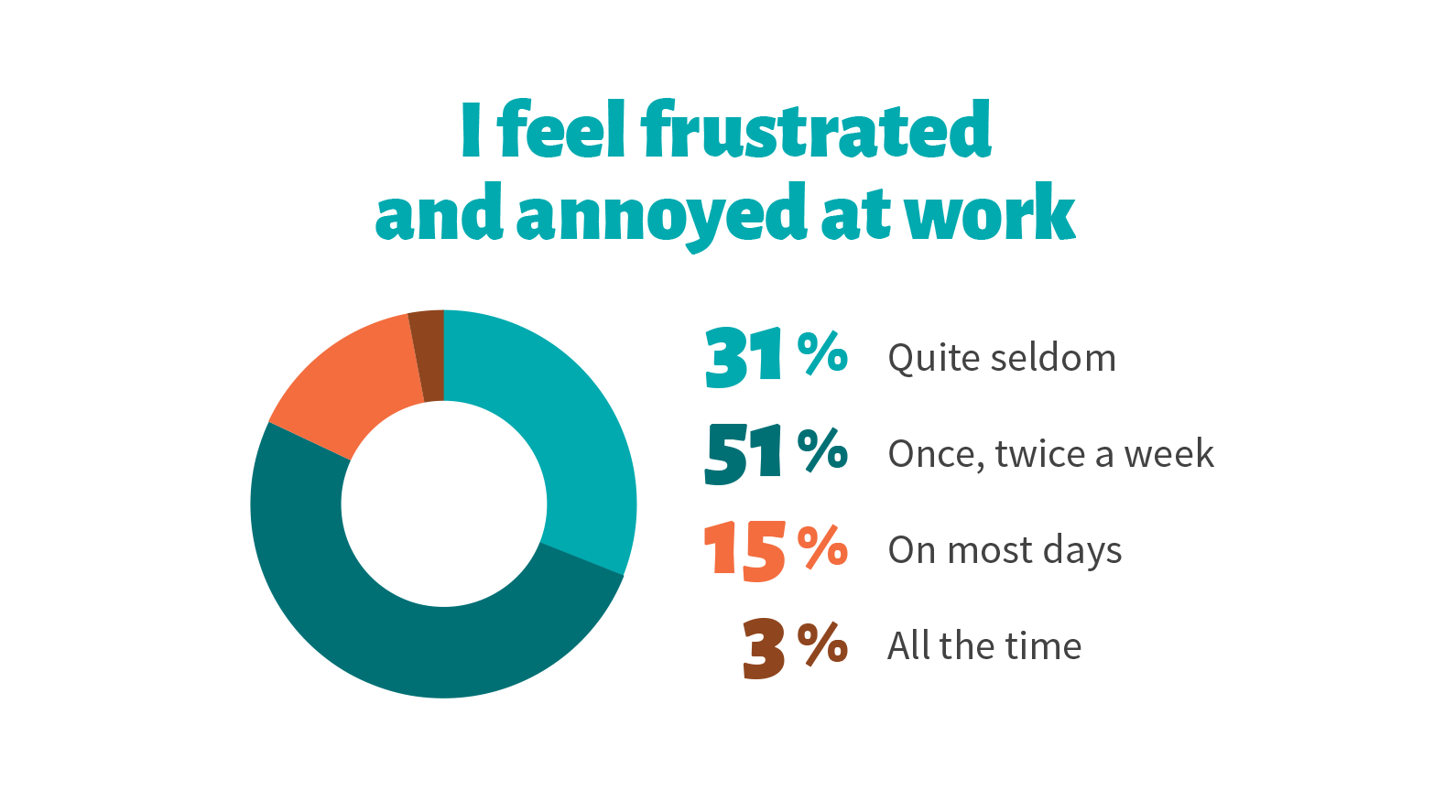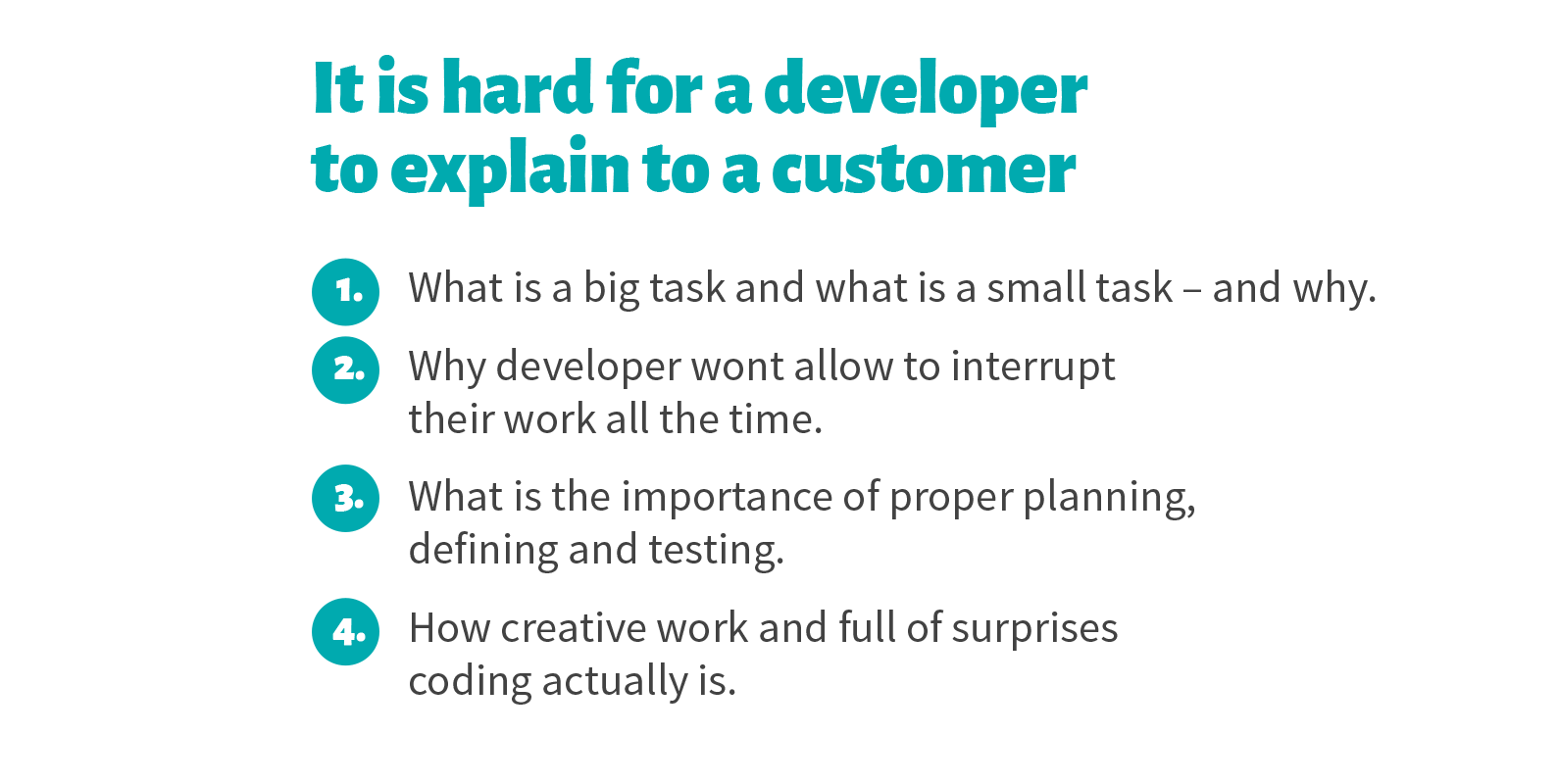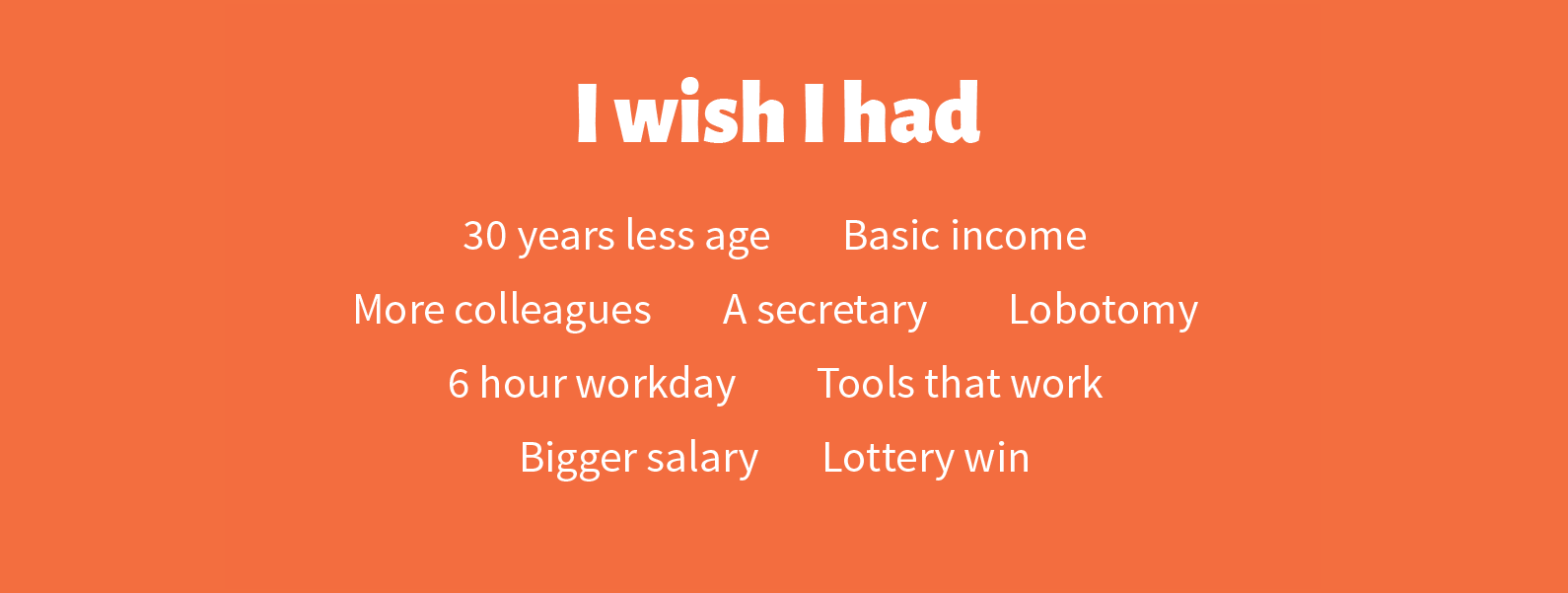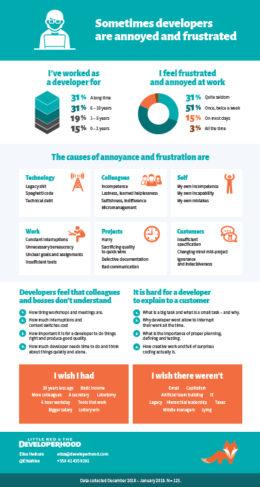This time last year I asked developers, what annoys and frustrates them at work. I got 125 replies. There are very few surprises among the results (which in itself is kind of a surprise), but some of the results are worth bringing up.
If you don’t want to wait until the end and want to see the whole graph right away, download it for yourself (pdf).
There is less frustration than I was afraid of
When I crafted the questionnaire, I was afraid that I would find out, that devs are quite annoyed and frustrated. According to the results only less than 20 % feel annoyed and frustrated often. The rest are annoyed once or twice a week or even less, which – I would guess – is some sort of work life constant.

Poor communication and management cause frustration
I asked about the source of annoyance and frustration with an open ended question and got a hell of a lot of answers. When I read through all the 125 replies, some themes started to repeat themselves in one form or another. At the end I grouped the themes under six headlines: technology, colleagues, self, work, project and customers. In other words, everything.
From the Developerhood point of view the most interesting themes were the ones relaed to teamwork, interaction, self-awareness and management.
- Colleagues: selfishness, indifference and micromanagement.
- Self: incompetence and incapability.
- Work: constant interruptions and unclear goals and assignments.
- Projects: bad communication.
- Customers: changing mind in the middle of the project.
Everybody is selfish but not many are indifferent, so the problem probably lies within teamwork, perspective and/or communication. Micromanagement, constant interruptions, unclear goals and assignments are signs of insufficient communication and management. Own incompetence sounds a lot like imposter syndrome and incapability sounds more like self management problem.
It is hard to explain oneself to others
When I asked “what your colleagues and bosses / customers don’t understand regarding your work or personality?”, the replies echoed a common and known problem. It is sometimes very hard for a technical expert to explain certain things to others.
Coding is a creative work full of surprises and it requires heavy concentration. Switching context and interruptions are expensive. To most developers it is a matter of principle to be allowed to do their work properly and with high quality.

It is impossible to understand the other without first becoming aware that there are differencies. This is why I sincerely hope that this questionnaire will light some bulbs and cause interesting discussions also on the other side of the table, among colleagues, bosses and customers.
There’s always a side dish of humour
I opened the door for creativity by asking: “What change would make your work or life significantly easier or better?” Most replies were in line with the results of the previous questions, but some of them – I guess – were meant as a joke.
Since they amused me a lot I decided to gather them for a comic relief, although there might accidentally be a dash of a seriousness amidst.

I don’t recommend reading the last two boxes, I wish I had and I wish there weren’t, literally or even seriously, but with some curiosity. Sometimes within a playful answer there is more truth than in a direct one.
 The results have been gathered to a graph which you can download for yourself from here (pdf).
The results have been gathered to a graph which you can download for yourself from here (pdf).
Feel free to distribute it, use it as a tool for opening a conversation or taking existing discussion further. I hope it will be inspiration for development and communication. I’m also more than happy to come share the results and discuss the implications with your organisation.